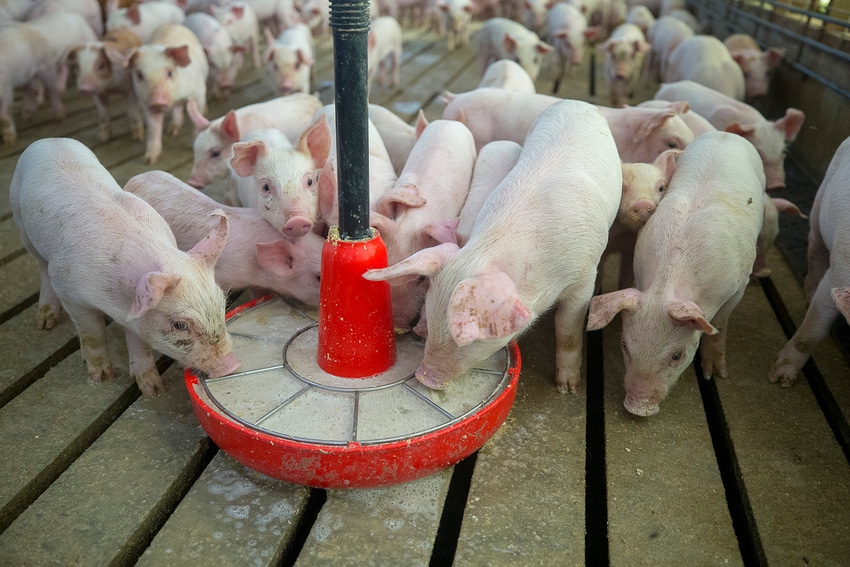Supplementation of B. subtilis enhanced growth rate, improved gut health and modified metabolomic profiles of weaned pigs experimentally infected with a pathogenic E. coli.

Postweaning diarrhea in young pigs is one of the most serious threats to the swine industry, Kwangwook Kim with the University of California-Davis said in a young scholar presentation to the Midwest meetings of the American Society of Animal Science and the American Dairy Science Assn.
Kim said the industry must prevent Escherichia coli-induced diarrhea, and the best way to do that is to maintain a healthy gut in weaned pigs. He defined a healthy gut as the absence of disease, effective digestion and absorption of nutrients, effective waste removal, a proper gut barrier, mucosal immunity and a healthy microbiota.
He focused on bacillus-based direct-fed microbials as potent producers of extracellular fiber-degrading enzymes that improve digestion. These microbials and enzymes have been shown to improve average daily gain, enhance intestinal morphology and up-regulate tight-junction proteins in the gut, Kim noted.
Kim and colleagues reported on a study that investigated dietary supplementation of Bacillus subtilis (DSM 25841) on growth performance, diarrhea, gut permeability, immunity and metabolomic profiles of weaned pigs experimentally infected with a pathogenic F18 E. coli.
In challenged pigs, Kim said E. coli infection reduced (P < 0.05) growth performance and intestinal villi height as well as increased (P < 0.05) diarrhea and permeability in the jejunum compared with non-challenged controls. On the other hand, B. subtilis supplementation linearly enhanced the average daily gain of E. coli-infected pigs, he said.
Further, Kim reported that inclusion of high-dose B. subtilis reduced (P < 0.05) jejunal permeability on days 5 and 11 post-inoculation compared with the E. coli-challenged control.
E. coli-challenged control pigs up-regulated (P < 0.05) the messenger RNA (mRNA) expression of SLC5A10 and MUC2 on day 5 post-infection but down-regulated (P < 0.05) expression of SLC5A10, MUC2 and CLDN1 on day 11 post-infection in jejunal mucosa, Kim reported. He added that supplementation of B. subtilis linearly up-regulated (P < 0.05) the mRNA expression of CFTR and ZO1 on day 5 post-infection and SLC5A10 and MUC2 on day 11 post-infection in jejunal mucosa of E. coli-infected pigs.
E. coli-infection increased (P < 0.05) the mRNA expression of several immune genes in the ileal mucosa, while inclusion of B. subtilis linearly down-regulated gene expression of IL1A on day 5 post-infection (P = 0.07) and IL6 on day 11 post-infection (P < 0.05) in ileal mucosa of E. coli-infected pigs, Kim said.
Additionally, B. subtilis modified the metabolomic profiles in colon digesta related to pathogenesis and amino acid metabolism, he noted.
Kim concluded that supplementation of B. subtilis enhanced the growth rate, improved gut health and modified the metabolomic profiles of weaned pigs experimentally infected with a pathogenic E. coli.
About the Author(s)
You May Also Like



